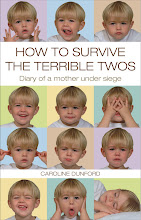So is this going to be a boom time for the generally downtrodden profession of writers? (Bearing in mind most UK writers currently make around £5,000 a year) Even the publishers, generally the strictest of disciples of the doom and gloom philosophy, are being mildly hopeful. They predict a rise in sales for crime, thrillers and books that tell you how to do things more cheaply - this millennium's making do and mend. Who knows they may even be digging out those old hippy books from the 70s that told you have to grow cress on your windowsill and stressed the importance of sharing baths. In fact books are so very much the next greatest thing they can even make obese children thin. Sure there's the odd shaky fear that EUK, the entertainment dominant wholesaler, parented by Woolworths might be on a bit of a sticky wicket and that might adversely affect Christmas stock. But then Sir Sugar's just stepped in and scooped up 4% of Woolworths and anyone who's seen the BBC's reality show The Apprentice won't be worrying.
But if you look a little closer it's not such good news for writers.
Lulu one of the champions of the little people (I mean individual authors not fairies) despite protesting its future is bright has cut a quarter of its employees. Could it be co-incidence that at the same time that publishing giant Amazon launches POD (print on demand)? Now, we all love amazon. It lets us search inside books, offers package deals, gets stuff to us quickly (for a small fee) and while you can't buy milk at the website you can pretty much buy anything else. What most people who buy from Amazon don't realize is that they take a hearty whack of the sales price. Even in the little, growing, hopeful future of ebooks Sony are taking a huge 50% of the sale price of any book bought to download for their ereader. Publishers have no choice but to cut royalites accordingly or lose money on stock - and eventually go bust.
Much as happened in the music industry everyone is taking such a big slice of the pie that the people who actually created the material are seeing an increasing diminishing return for their efforts.
While it's a nice, radical idea to say let's cut out the middle man and (to misquote) self-publish and be damned, the sad fact is self-publication rarely leads to success. (Remember what I was saying about the good, the great, the worthy Lulu above?). But why doesn't it work? It doesn't work because when faced with several thousand single voices shouting for sales your average member of the buying British public (myself included) opts to spend our hard earned pennies with people with we think we can trust to provide the kind of goods we're looking for - in short we go with globally known distributors like Amazon and publishers whose names we learned in our cradles. Sure some independent stuff might be cheaper, but it might also be rubbish and we won't know until we've spent our cash.
What we need is for someone to come along and help with the overwhelming choice of available books - whether that's going to the 3 for 2 section at Borders (where your last free throw is a risk taker) or whether it's doing some radically different.
It would also be good if we could find something that let authors get a decent royalty and stand a chance of making the week's garret rent.
There was another industry that had much the same problem. The music industry. Apple's itunes have on a number of occasions preventing the major music labels from upping their share of the ante.
It's not a perfect answer for the book world, but we need something and we need it now or your average author is going to become the archetypal starving artist in the very near future.






